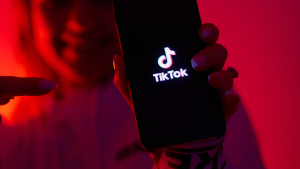Simple Tips to Combine Your SEO and Social Media Strategies

Social Media Strategies
Conduct exhaustive keyword research to identify industry-specific, high-ranking terms. By incorporating these keywords into your social media posts, you’ll be able to increase the visibility of your content in search engine results pages (SERPs) and boost your organic reach.
Also Read:- SEO Ranking Factor You MUST Master To Rank in Google
Create quality backlinks using social media. Engage your audience by sharing your content on social platforms. When your content is shared, enjoyed, or commented on, the likelihood that other websites will link to it increases. These backlinks can increase your site’s authority and search engine ranking.
Combining SEO and social media can supercharge your online visibility and drive more organic traffic to your website. While SEO focuses on improving your website’s visibility in search engines, social media helps engage users, build relationships, and increase brand recognition. Here’s a simple guide on how to integrate the two:
1. Use Keywords Across Platforms:
- Research: Identify which keywords are driving traffic to your website.
- Implementation: Incorporate these keywords into your social media posts, profiles, and hashtags to ensure consistency and relevance.
2. Share High-Quality Content:
- Create top-notch, SEO-optimized content for your website (blog posts, videos, infographics, etc.)
- Share this content on your social channels to increase visibility and potentially drive social traffic back to your site.
3. Optimize Social Profiles for Search:
- Ensure your social media profiles are complete, with a clear bio, profile and cover images, and a link to your website.
- Use target keywords naturally in your bio or description to make profiles searchable.
4. Use Social Media to Boost Link Building:
- Shareable content can earn backlinks. Create valuable content that others want to link to.
- Engage with influencers or relevant profiles in your industry. They might share or link to your content, driving both social and organic traffic.
5. Leverage User-Generated Content (UGC):
- Encourage users to create content related to your brand, products, or services. This can be reviews, testimonials, or any user-generated posts.
- UGC can improve trust, drive engagement, and provide fresh content for search engines.
6. Utilize Social Signals:
- Although the direct impact of social signals (likes, shares, comments) on SEO is debated, there’s a correlation between content that’s popular on social media and content that ranks well in search engines.
- Encourage social sharing and engagement to boost your content’s reach and visibility.
7. Monitor Both SEO and Social Analytics:
- Use tools like Google Analytics, Google Search Console, and social media insights to track performance.
- Analyze which content performs best, where your traffic is coming from, and adjust strategies accordingly.
8. Collaborate Internally:
- Ensure that your SEO team and social media team are in regular communication.
- Share insights, data, and strategies to ensure a cohesive approach.
9. Optimize for Local SEO with Social Media:
- For businesses with a physical location, ensure your address, phone number, and hours are consistent across your website and social profiles.
- Encourage satisfied customers to leave reviews on Google and social media platforms.
10. Stay Updated and Adapt:
- Both the SEO and social media landscapes evolve rapidly. Regularly review and adjust your strategies based on the latest trends and algorithm changes.
Maintain consistent branding across your website and social media channels. Utilize the same brand colors, typefaces, and visual elements to establish a unified online identity. Consistency builds brand recognition and increases the likelihood that social media users will click through to your website.
Develop and distribute content that resonates with your intended audience. Social media sharing is more likely to occur with content such as informative blog posts, captivating videos, and visually appealing images. When your content is shared, it raises brand awareness and drives traffic to your website, which has a positive effect on your SEO efforts.
Although Google has stated that social signals (such as likes, shares, and remarks) have no direct impact on search engine rankings, there is a correlation between social engagement and increased visibility. Concentrate on developing engaging, conversation-starting content that encourages social interactions. The greater the engagement your content receives on social media, the greater the likelihood that authoritative websites will notice it and link to it, positively impacting your SEO efforts.
Collaborate with industry influencers to promote your brand and expand its reach. Influencers have a large following on social media platforms, and their endorsement can increase brand recognition and credibility. Engaging with influencers can result in valuable backlinks and an increase in website traffic, thereby bolstering your SEO efforts.
Using analytics tools, track and evaluate the efficacy of your SEO and social media campaigns. Determine which strategies are responsible for the highest levels of traffic, engagement, and conversions. By identifying successful strategies, you can maximize your efforts and effectively allocate your resources.
By integrating your SEO and social media strategies, you can establish a formidable online presence that generates organic traffic, engages your audience, and increases your brand’s visibility. Remember to adapt these tips to your unique business objectives and industry, and to keep abreast of the latest trends and best practices to remain competitive in the ever-changing digital landscape.
Final Words
In conclusion, while SEO and social media might seem like separate entities, they can be deeply intertwined. Integrating them can provide a holistic approach to digital marketing, making the most of both organic search and social engagement.








